social media
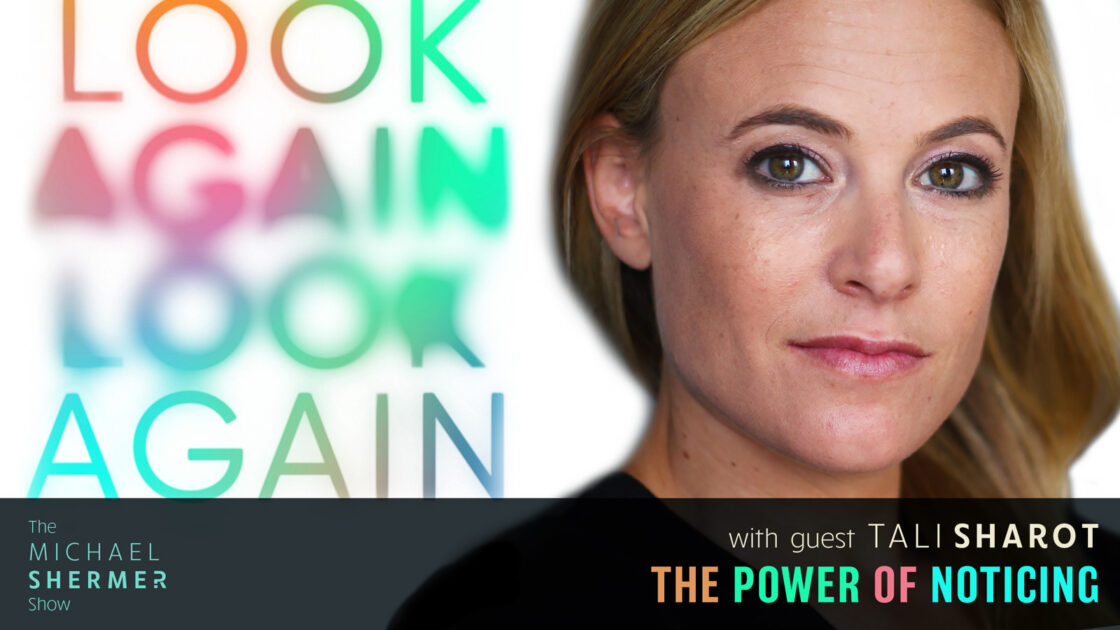
Shermer and Sharot discuss: the best day of her life • the evolutionary origins of habituation • habituation at work, at home, and in the bedroom • Why don’t we habituate to extreme pain? • marriage, romance, monogamy, infidelity • depression • depression, happiness, and variety • negativity nias • creativity and habituation disruption • lying and misinformation • illusory truth effect • truth bias • moral progress • preference falsification • pluralistic ignorance.

Shermer and Brodsky discuss: growing up Jewish in the Soviet Union and Israel • why liberals (or progressives) no longer defend free speech • cancel culture: data and anecdotes; whether it is an imagined moral panic; social media • free speech law vs. free speech norms • pluralistic ignorance and the spiral of silence • solutions to cancel culture • identity politics • witch crazes and virtue signaling • hate speech and slippery slopes • how to stand up to…
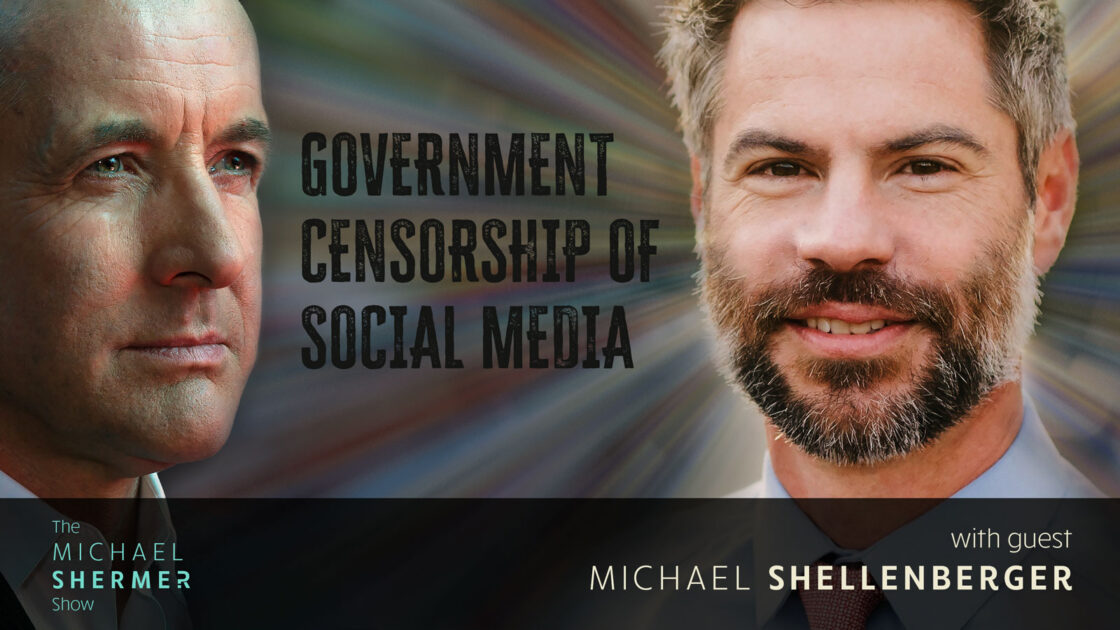
Michael Shellenberger explains the role of government agencies in social media censorship, his work on the Twitter files, and the differences between independent and mainstream journalism. PLUS: how to deal with the opioid epidemic, what we can do about homelessness, his take on January 6, George Floyd, UFOs and UAPs, and more. Recorded live in Santa Barbara, CA at the Skeptics Society 2023 conference.
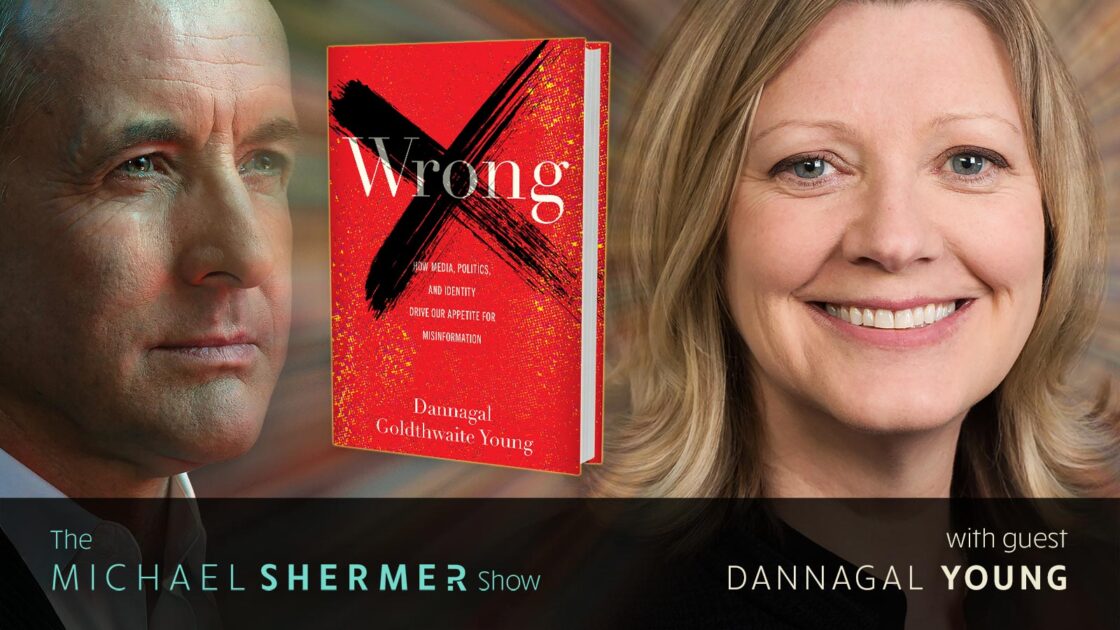
Shermer and Young discuss: how do you know if you are wrong, or that someone else is wrong • the evolution of reason: veridical perception or group identity? • the 3 “Cs” of our needs: comprehension, control, community • open-minded thinking • intellectual humility • political polarization • echo vs. identity chambers • social media • lies • disinformation • Donald Trump • democracy • science and morality • solutions to identity-driven wrongness.
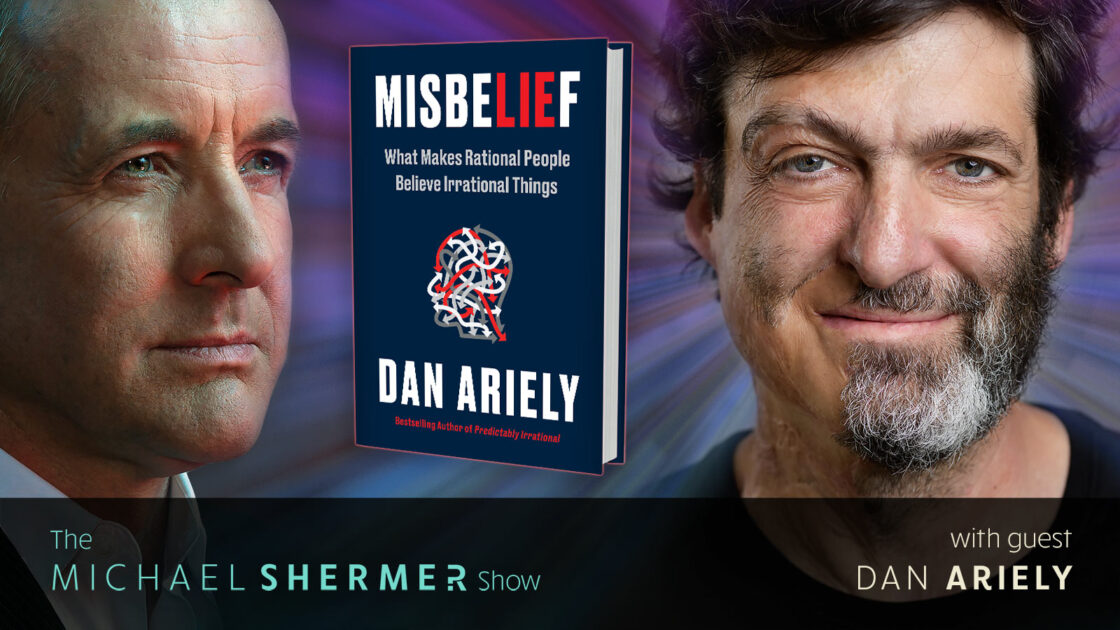
Shermer and Ariely discuss: What is disinformation and what should we do about it? • How do we know what is true and what to believe? • virtue signaling one’s tribe as a misbelief factor • the role of complex stories in misbelief • emotions, personality, temperament, trust, politics, and social aspects of belief and misbelief • the funnel of belief • social proof and the influence of others on our beliefs • a COVID-23 pandemic • social media companies…

Shermer and Lukianoff and Schlott discuss: • the definition of Cancel Culture • The Henny Youngman Principle: “Compared to what?” • Cancel Culture as imagined moral panic • Cancel Culture on the political Left/Right and on social media • free speech law vs. norms • Diversity, Equity, and Inclusion (DEI) • sensitivity training • bias hotlines and silencing of speech • pluralistic ignorance • The 4 Great Untruths • Jean Twenge’s theory of generational change • solutions to Cancel Culture.
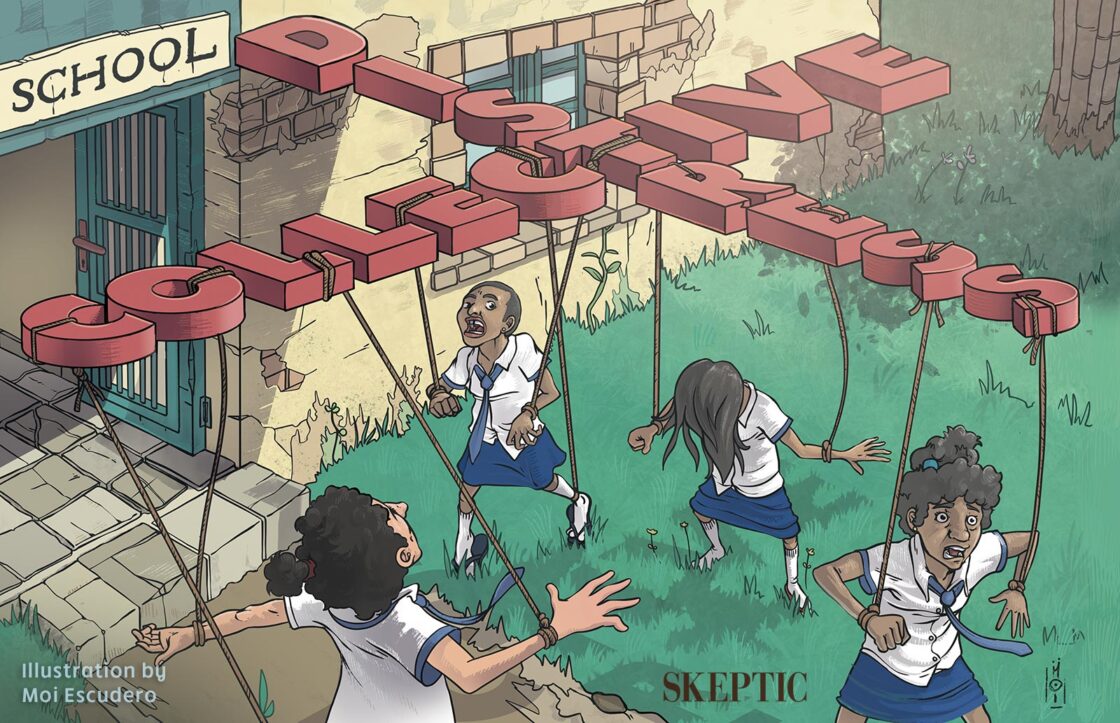
In response to recent (often ominous) reports from western Kenya regarding a bizarre condition that swept through a Christian all-girls high school, medical sociologist and journalist Robert E. Bartholomew reminds us that these types of outbreaks should be seen for what they are: collective manifestations of distress.
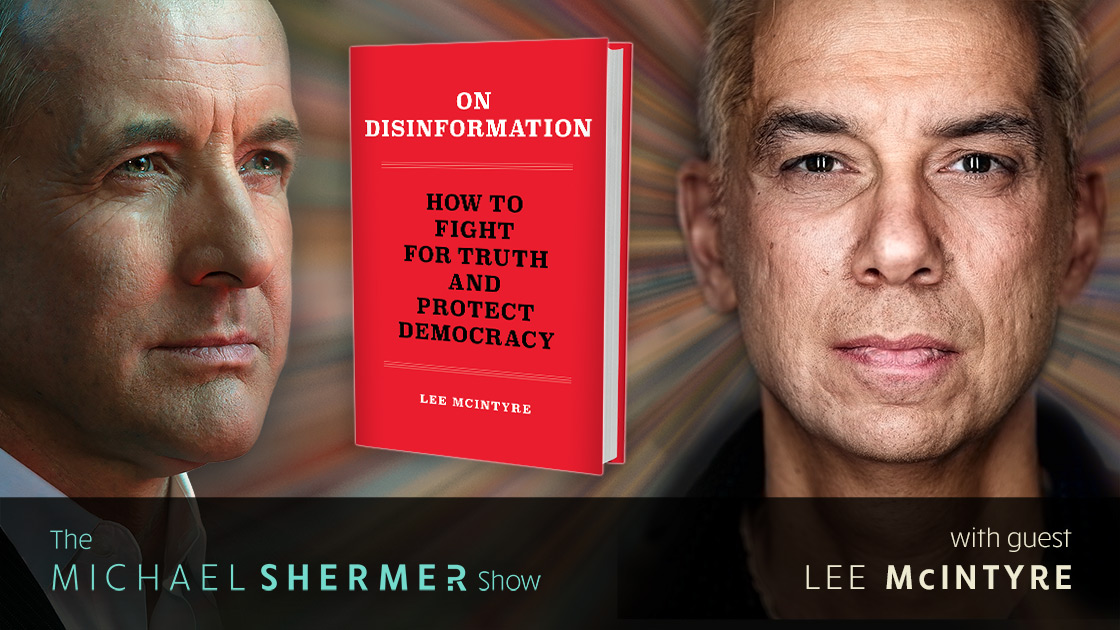
Shermer and McIntyre discuss: default to truth theory • RFK Jr. • whether reason evolved for veridical perception or group identity? • How do we know what is true and what to believe? • worst case scenarios if Donald Trump wins in 2024 • trans issues, race issues, GMOs, nuclear power, climate doomsdayism • What went wrong during the COVID-19 pandemic? • disinformation about masks, vaccines • social media and disinformation.
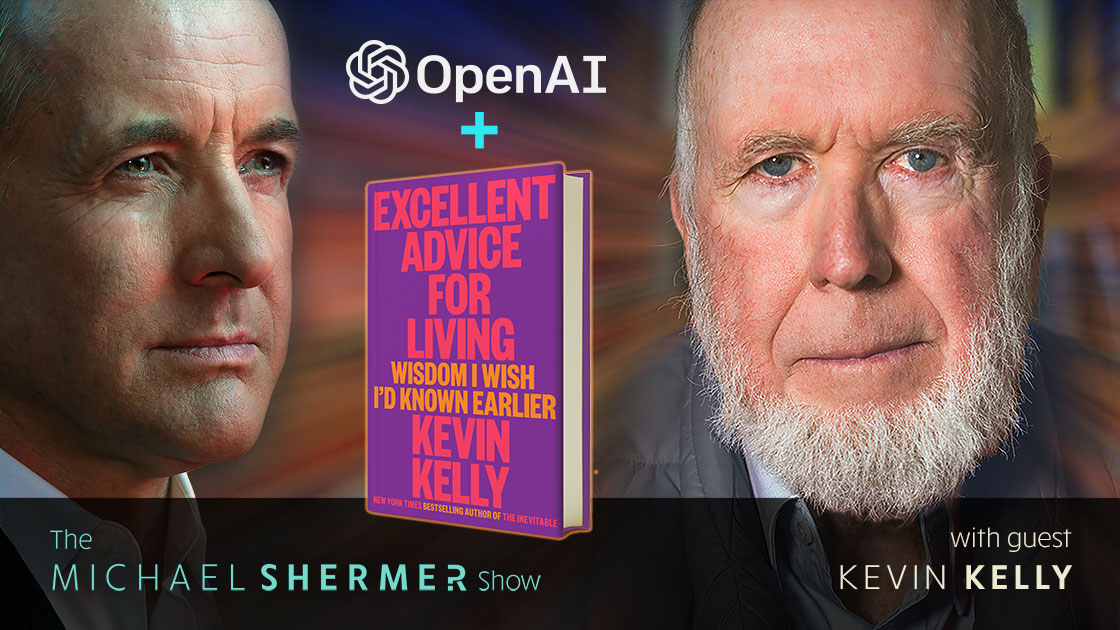
Shermer and Kelly discuss: protopian progress • ChatGPT • artificial intelligence; an existential threat? • evolution • cultural progress • self-driving cars • innovation • social media • putting an end to war • compound interest and the long term effect of small changes • why you don’t want to be a billionaire • beliefs and reason • setting unreasonable goals • persistence as key to success • probabilities and statistics, not algebra and calculus • investing: buy and hold • how to fully become yourself.
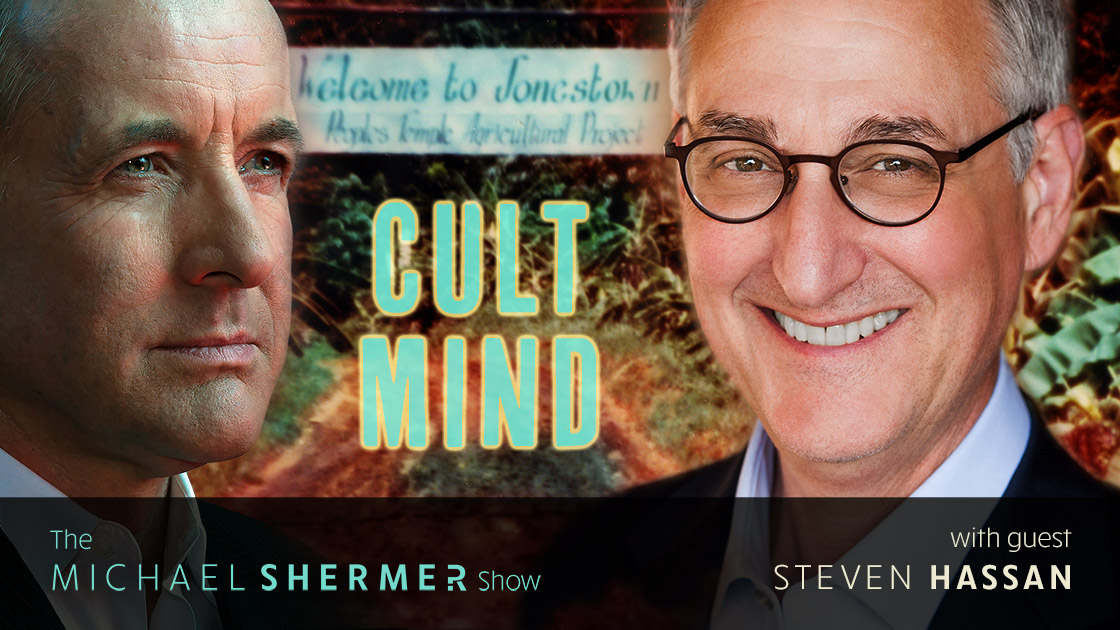
Shermer and Hassan discuss: types of cults, their characteristics • cult leader profiles • the influence continuum • mind control • brainwashing • Project MK-ULTRA • Scientology • NXIVM • strip search hoax • social media mind control • neuroscience of mind control • authoritarian mindset • Trump’s mind-control techniques • breaking free of cults.
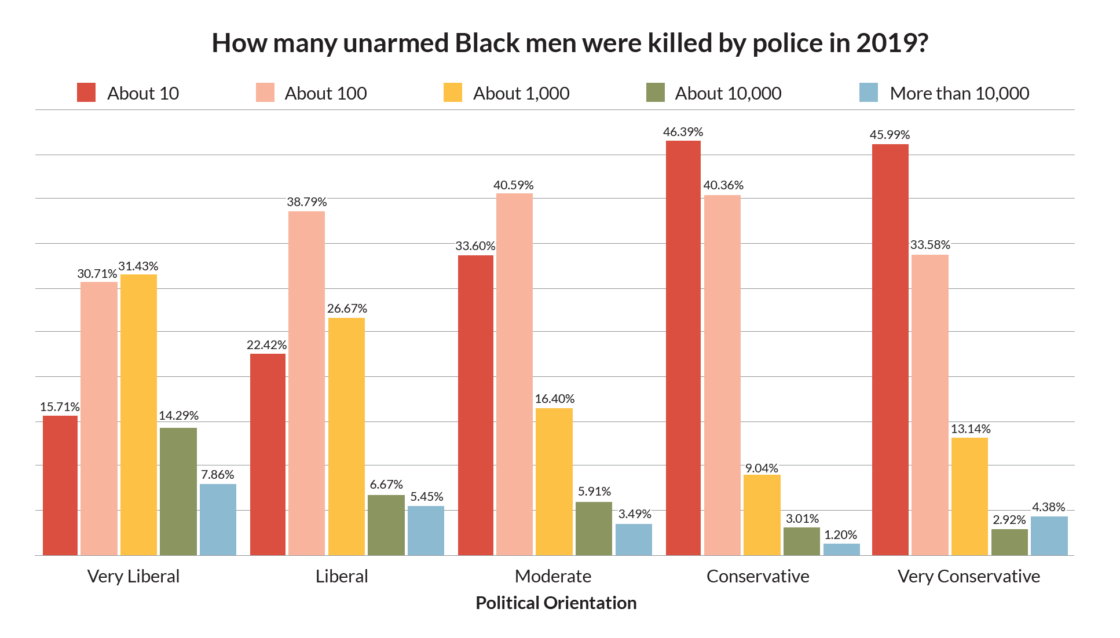
Everyone knows that race relations in America have a long and troubled history. By some measures race relations are very good, with polls showing that people are more tolerant of racial diversity today than they were decades ago. But by other measures it would seem race matters are more disconcerting than ever. In this analysis Chris Ferguson attributes the troubling events of recent years to the news media and how they create a social narrative driving the decline of race…

Michael Shermer introduces the theme of Skeptic magazine volume 27, number 3: Race Matters.
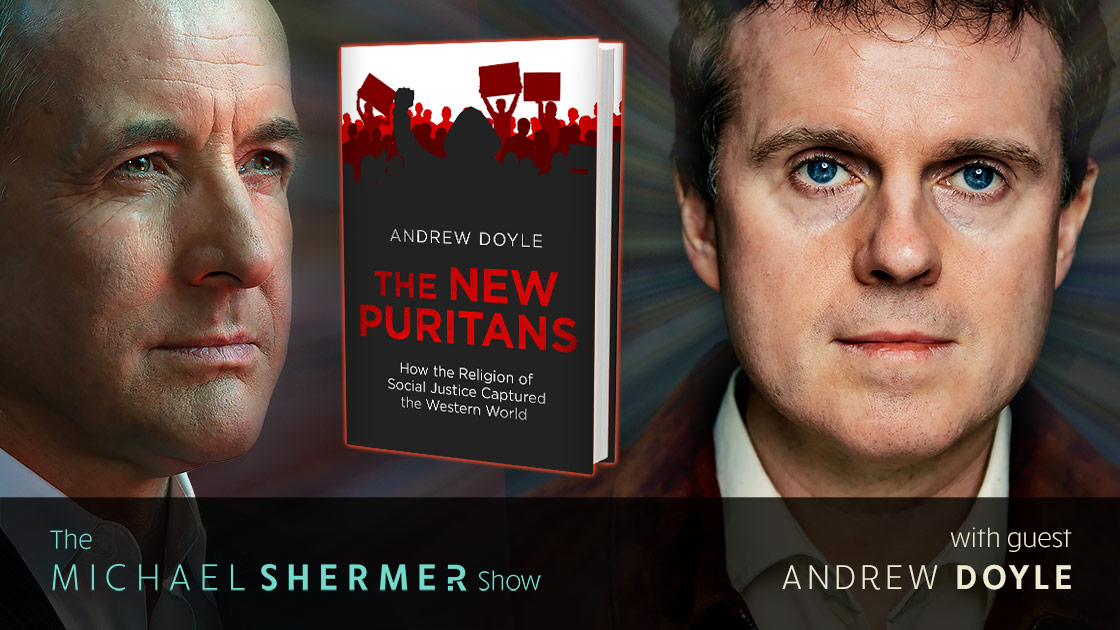
Shermer and Doyle discuss: terminology of: PC, identity politics, woken, social justice, antifa, BLM, TERF, intersectionality • Critical Social Justice as a witch craze • Satanic Panic (1980s) • Recovered Memory Movement (1990s) • How widespread is the problem: minor skirmishes on social media or mainstream? • Hill-Harris 2021 poll: 32% voters ID as woke and 31% said they don’t know what the term means • new puritanism as a secular religion • Whiteness and White fragility • Implicit Association…
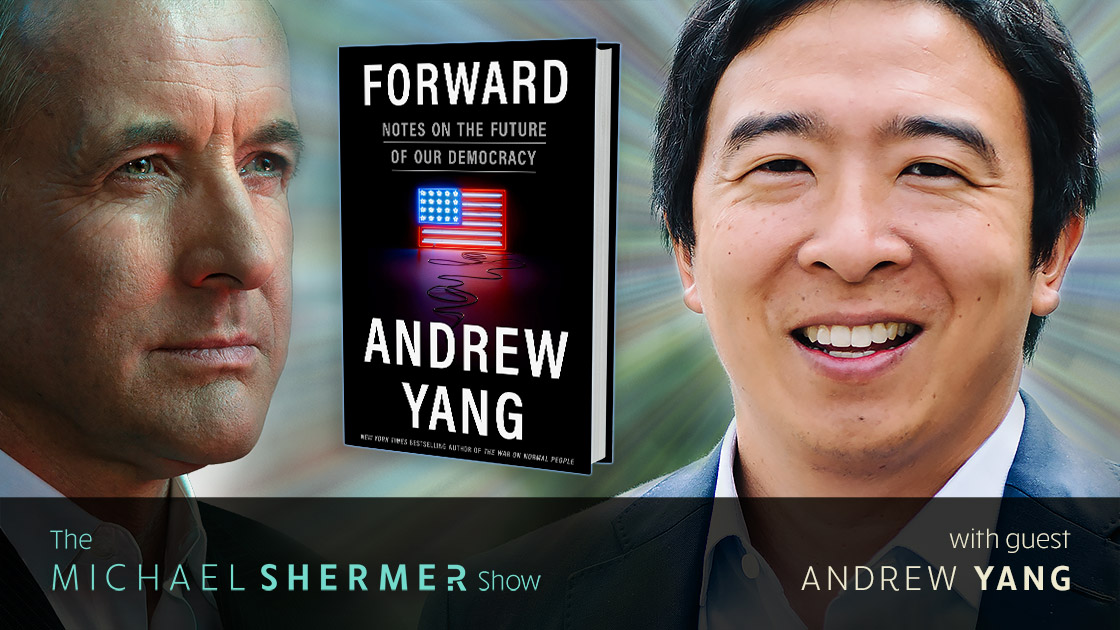
Michael Shermer speaks with Andrew Yang about the Forward Party, the future of politics in a party duopoly, political partisanship, and how to bring about the change we need. This conversation is based on Yang’s new book Forward: Notes on the Future of Our Democracy.
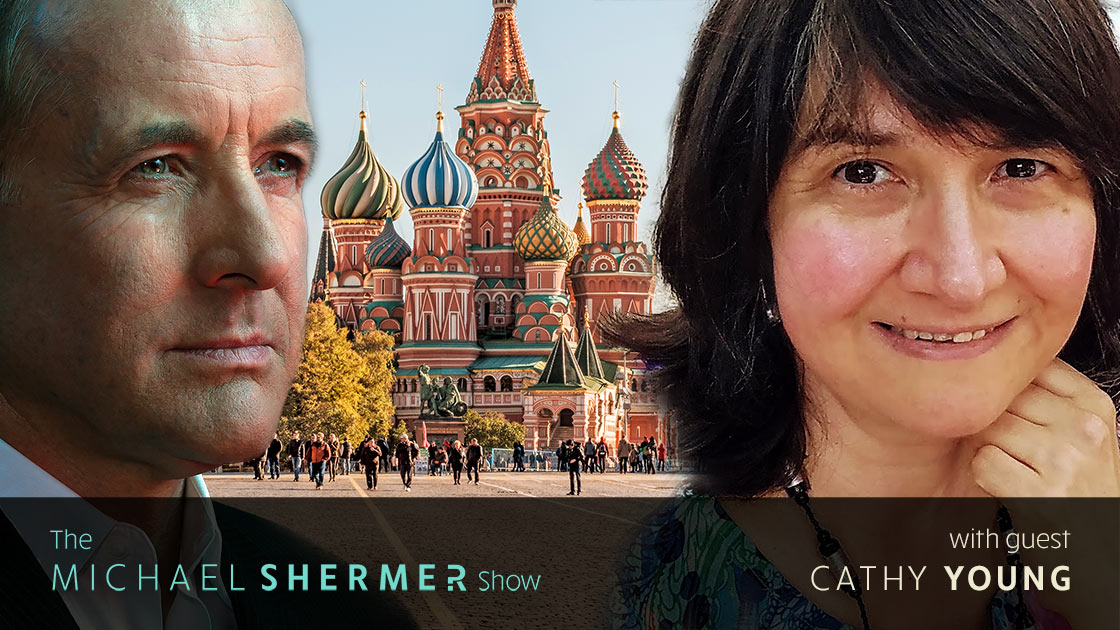
Michael Shermer speaks with Cathy Young, a cultural studies fellow at the Cato Institute. She writes on a wide variety of cultural and political issues, including gender issues (equal opportunity in the workplace, sexual harassment policy, sexual assault and domestic violence law, child custody, etc.), freedom of speech and intellectual tolerance, diversity, education, and perspectives on American history, as well as Russia and U.S.-Russian relations.
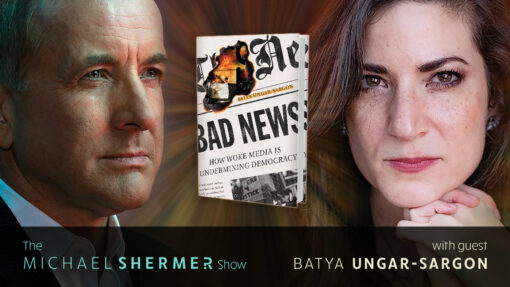
Michael Shermer speaks with Batya Ungar-Sargon about her new book Bad News: How Woke Media Is Undermining Democracy in which she reveals how American journalism underwent a status revolution over the twentieth century — from a blue-collar trade to an elite profession.
Is there vigilantism in science? Was the renowned Harvard biologist Edward O. Wilson wrongly convicted of racism and promoting race science in the court of public opinion? Yes, says his long-time collaborator and world-class scientist Bert Hölldobler. PLUS: Michael Shermer speaks with Batya Ungar-Sargon about her new book Bad News: How Woke Media Is Undermining Democracy in which she reveals how American journalism underwent a status revolution over the twentieth century — from a blue-collar trade to an elite profession.
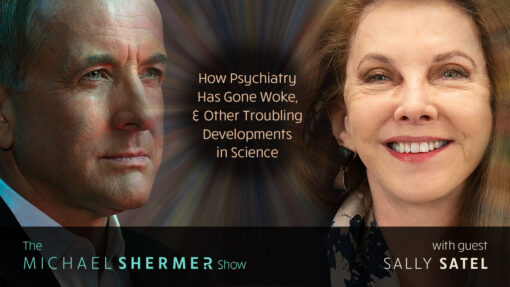
Michael Shermer and professor of psychiatry, Sally Satel, discuss: how political correctness has corrupted medicine • how wokeness and social justice activism has corrupted psychiatry • What is social justice and who is really practicing it? • medical models of mental illness • why mental illness is so hard to treat • medical models of addiction: where they succeed, where they fail • how addictions are treated • Can one be addicted to porn? • Can one be addicted to…
In episode 243 of The Michael Shermer Show, Michael speaks with psychiatrist Dr. Sally Satel about addiction, the opioid crisis, deaths of despair, and how psychiatry has gone woke.
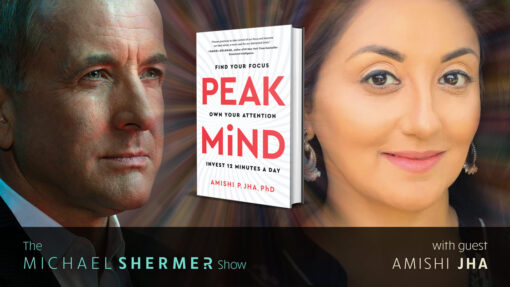
In episode 232, Michael Shermer speaks with neuroscientist and professor of psychology, Amishi Jha, about how to achieve Peak Mind, based on her book Peak Mind: Find Your Focus, Own Your Attention, Invest 12 Minutes a Day.
NEXT →


























